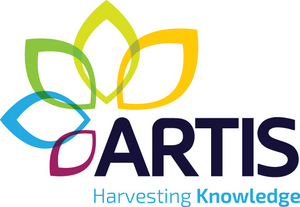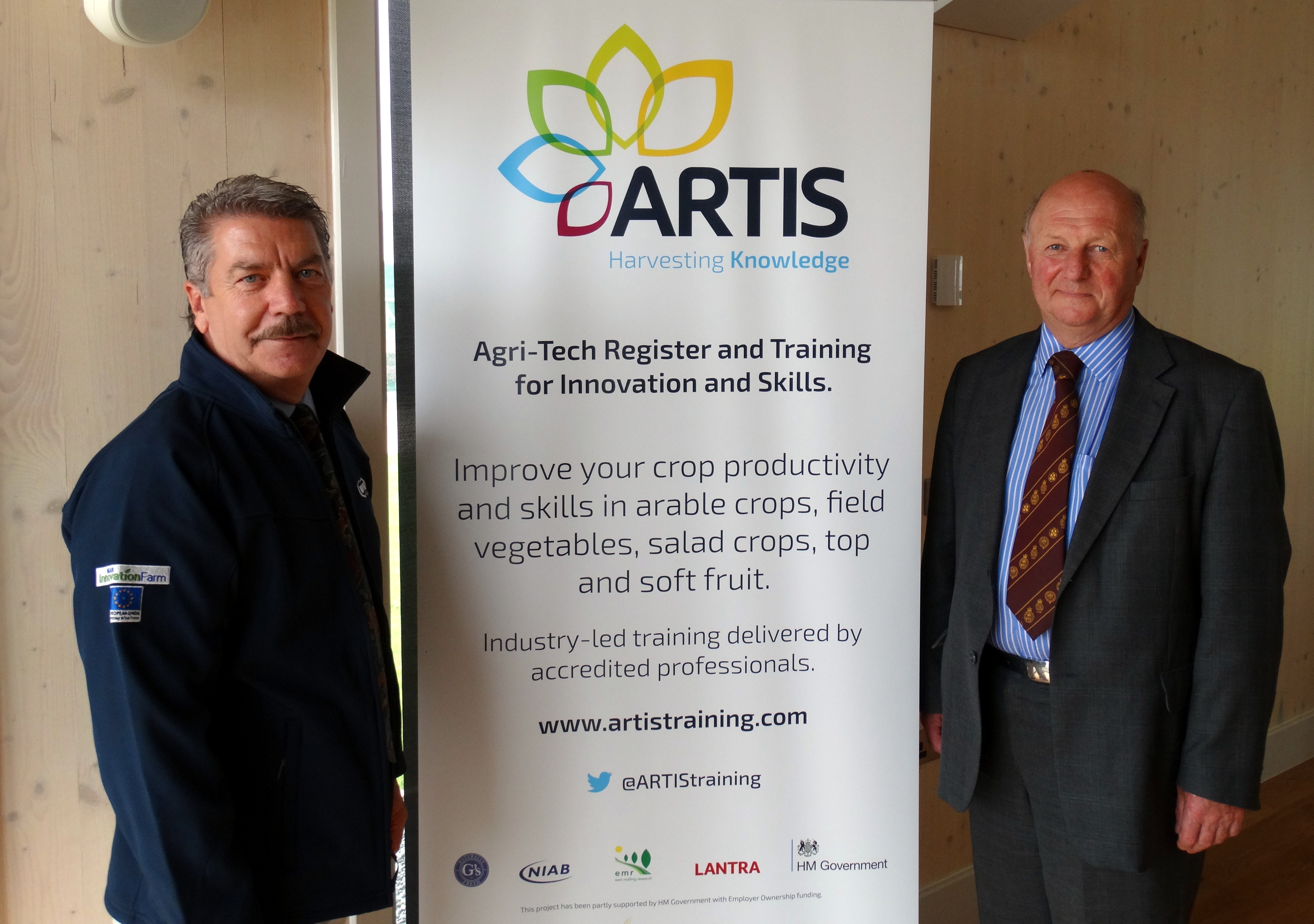- About
-
Research
- Agronomy and farming systems
-
Agricultural crop research
-
Research projects - agriculture
- About SASSA-SAI
- BioBoost
- Biomass Connect
- CTP for Sustainable Agricultural Innovation
- Climate Ready Beans - workshop presentations (March 2022)
- Crop diversity HPC cluster
- Designing Future Wheat
- Final project workshop
- Get involved
- List of materials
- News and updates
- Partners
- Rustwatch
- The Sentinel Crop Disease Surveillance Network
- The research team
- UK Cereal Pathogen Virulence Survey
- UK wheat varieties pedigree
- Weed management - IWM Praise
- Crop breeding
- Crop characterisation
- Data sciences
- Genetics and pre-breeding
- Plant biotechnology
- Plant pathology and entomology
- Resources
-
Research projects - agriculture
-
Horticultural crop research
-
Research projects - horticulture
- Augmented Berry Vision
- BEESPOKE
- Boosting brassica nutrition in smart growing systems
- CTP for Fruit Crop Research
- Develop user-friendly nutrient demand models
- Egg laying deterrents for spotted wing drosophila
- Enhancing the nutritional quality of tomatoes
- Improving berry harvest forecasts and productivity
- Improving vineyard soil health through groundcover management
- Intelligent growing systems
- Knowledge transfer for sustainable water use
- POME: Precision Orchard Management for Environment
- RASCAL
- STOP-SPOT
- UV-Robot
- Crop science and production systems
- Genetics, genomics and breeding
- Pest and pathogen ecology
- Field vegetables and salad crops
- Plum Demonstration Centre
- The WET Centre
- Viticulture and Oenology
-
Research projects - horticulture
- Crop Science Centre
-
Services
- Analytical Services
- Business Development
- Commercial trial services
- Membership
- Plant breeding
- Plant characterisation
- Seed certification
-
Training
-
Technical agronomy training
- Advanced crop management of bulb onions
- Advanced crop management of vegetable brassicas
- Advanced nutrient management for combinable crops
- Benefits of cover crops in arable systems
- Best practice agronomy for cereals and oilseed rape
- Developing a Successful Strategy for Spring Crops
- Disease Management and Control in Cereal Crops
- Incorporating SFI options into your rotation
- Protected Environment Horticulture – Best Practice
- Techniques for better pest management in combinable crops
- Crop inspector and seed certification
- Licensed seed sampling
-
Technical agronomy training
- News & Views
- Events
-
Knowledge Hub
- Alternative and break crops
-
Crop genetics
- POSTER: Diversity enriched wheat (2025)
- POSTER: Genetics of wheat flag leaf size (2024)
- POSTER: Wheat yield stability (2024)
- Poster: Traits for future cereal crops (2022)
- POSTER: wild wheat fragment lines (2022)
- POSTER: Improving phenotyping in crop research (2022)
- PRESENTATION: Plant breeding for regen ag
- Poster: Designing Future Wheat (2020)
- Crop nutrition
-
Crop protection
- POSTER: Understanding the hierarchy of black-grass control (2025)
- POSTER: Emerging weed threats (2025)
- POSTER: Disease control in barley (2025)
- Poster: Weed seed predation in regen-ag (2024)
- POSTER: Disease control in winter wheat (2025)
- POSTER: Mode of action (2023)
- POSTER: Inter-row cultivation for black-grass control (2022)
- POSTER: UKCPVS winter wheat yellow rust in spring 2025 (2025)
- Poster: Management of Italian ryegrass (2021)
- POSTER: UKCPVS winter wheat rusts - 2024/25 review (2025)
- POSTER: UKCPVS disease monitoring and the benefit to UK growers (2025)
- POSTER: Diagnosing and scoring crop disease using AI (2025)
- POSTER: Finding new sources of Septoria resistance (2024)
- POSTER: Fungicide resistance research (2024)
- POSTER: Detecting air-borne pathogens (2024)
- POSTER: Oilseed rape diseases (2024)
- POSTER: Fungicide resistance research (2024)
- POSTER: Improving chocolate spot resistance (2022)
- Poster: Pathogen diagnostics (2022)
- Fruit
- Regen-ag & sustainability
-
Seed certification
- POSTER: Wheat DUS (2024)
- POSTER: Innovation in variety testing (2024)
- POSTER: AI and molecular markers for soft fruit (2024)
- POSTER: Barley crop identification (2023)
- POSTER: Herbage grass crop identification (2023)
- POSTER: Herbage legume crop identification (2024)
- POSTER: Minor cereal crop inspecting (2023)
- POSTER: Pulse crop identification (2023)
- POSTER: Wheat crop identification (2023)
-
Soils and farming systems
- POSTER: Checking soil health - across space and time (2024)
- POSTER: Checking soil health - step by step (2024)
- POSTERS: Changing soil management practices (2022)
- Poster: Monitoring natural enemies & pollinators (2021)
- POSTER: Soil structure and organic matter (2024)
- POSTER: Novel wheat genotypes for regen-ag (2024)
- Video: New Farming Systems project (2021)
- Video: Saxmundham Experimental Site (2021)
- POSTER: Impact of prolonged rainfall on soil structure (2024)
- POSTER: Soil & agronomic monitoring study (2024)
- POSTER: The impact of rotations & cultivations (2024)
- VIDEO: Great Soils; soil sampling guidelines (2020)
- Poster: Soil invertebrates within arable rotations (2024)
- VIDEO: Soil health assessment (2021)
- POSTER: Saxmundham - modern P management learnings
- POSTER: Saxmundham - 125 years of phosphorus management
- Poster: Soil phosphorus - availability, uptake and management (2025)
- POSTER: Morley long term experiments (2025)
- POSTER: Exploiting novel wheat genotypes for regen-ag (2025)
- Video: Saxmundham Experimental Site (2021)
- Varieties
ARTIS NEWS: ARTIS responds to industry demands for skills-based training
 ARTIS 2014/15 Training Course Guide
ARTIS 2014/15 Training Course Guide
A new, industry-focused training academy will keep farmers, growers and advisers up to date with the latest crop production technologies and practices demanded by the UK’s £100bn food chain.
ARTIS (Agri-Tech Register and Training for Innovation and Skills) has been developed to address the current fragmented approach to training provision which is holding back the competitiveness and profitability of UK agriculture. Evidence demonstrates that the farming industry lags significantly behind other sectors in its uptake of training opportunities, with just 41% of farm businesses providing training to their staff compared with a national average of 65%.
ARTIS’ core objective is to improve the consistency, quality and accessibility of training – delivered in a usable and relevant format – for businesses and employers of all sizes operating in the arable, vegetable and fruit sectors.
Led by NIAB, G’s Growers, LANTRA and East Malling Research, ARTIS provides a new mechanism to support knowledge exchange between the research base and industry. The three-year, £3.6m programme is supported by £1m in Government funding from the UK Commission for Employment and Skills (UKCES), alongside industry co-investment.
Central to the ARTIS project is a network of employer-led steering groups covering arable crops, vegetable and salad crops, fruit and soils. These steering groups bring researchers, farmers and agronomists together with the technical representatives of major supermarkets and food processors to identify key research outcomes and topics with immediate practical and commercial benefit for growers and the entire food supply chain.
Unveiling the first set of ARTIS training courses for arable, vegetable and salad growers and an industry briefing paper on the need for a new approach to training and skills provision in the agri-tech sector, Sir Jim Paice MP, ARTIS Steering Board Chair, said:
“The UK Agri-Tech Strategy has signalled a renewed policy emphasis on productive, hi-tech agriculture, highlighting the vital role of applied research and increased collaboration between public and private sector. It also recognises the need to strengthen industry-level training and skills provision to support more effective uptake and application of research outputs. Sadly in the 35 years since I was a training officer it remains the case that many farmers are unwilling to invest in developing skills and knowledge.
“The ARTIS project responds directly to this challenge by ensuring that the knowledge transfer process is demand-led, based on the latest applied agricultural and horticultural research, and focused on delivering practical solutions to employers’ business needs.”
ARTIS training courses range from generic modules covering issues such as soil management, crop nutrition, spray technology and precision farming to more specific agronomy packages focused on helping growers protect and realise yield potential in particular crops. The training itself, delivered by accredited agronomists and trainers, is flexible and responsible to business needs, ranging from field, glasshouse and classroom-based sessions to interactive on-line academies.
NIAB’s Bill Clark believes there is a strong appetite among UK farmers and growers to access the latest research findings and advice:
“Although less than half of farm businesses currently provide training, our experience suggests that a much higher proportion are keen to access new knowledge and skills. Well over 90% of farmers attending NIAB open days this summer said they wanted to find out more about the training and knowledge transfer opportunities available.
“The challenge is to make training and skills development in the agri-tech sector more responsive and relevant to the needs of producers and their customers. ARTIS’ core objective is to ensure new technologies and practices with the potential to improve productivity and efficiency are transferred directly and in a usable form to farmers, growers and their advisers,” finished Mr Clark.
Click here for a presentation by John Shropshire, Chairman of G's and Beverly Dixon, HR Director of G's on the background to G's involvement with ARTIS and the need for practical, skills-based industry training.
Places on the first set of ARTIS classroom and field-based training courses, available from Autumn 2014 through to Spring 2015, can be booked online at www.artistraining.com.
New courses will be added onto the website throughout the year with an online training programme available from Winter 2014.
Many courses will be specific to either arable, vegetable, salad or fruit crops. They will typically be one day’s training, made up of two half-day classroom and/or field-based modules, for up to 15 people. All participants receive an ARTIS Accredited Certificate and will carry the CPD points allocated by any of the relevant industry accreditation schemes. Courses are run at venues across the country and ARTIS will consider any requests for new venues and dates, as well as customised training programmes. A typical day course will cost £200 + VAT.
ARTIS
ARTIS is an industry-led accredited training initiative, launched in 2014 and developed by G’s Growers, NIAB, LANTRA and East Malling Research, with funding from UK Commission for Employment and Skills. It is focused on improving the consistency, quality and accessibility of training for farm businesses and employers of all sizes operating in the arable, vegetable, salad crop and fruit sectors.
The practical skills-based training course structures are developed by NIAB, with input from agronomists, experts and consultants from a range of industry organisations and businesses. Each course fits into one of five areas of crop production:
- Soil and Water covers soil and water management, crop irrigation, tillage, drainage and managing compaction;
- Crop Protection focuses on weed, pest and disease management and spray applications;
- Nutrient Management includes macro and micro nutrient management, reducing environmental risk and recognising crop deficiencies;
- Farming Systems includes new technologies, managing rotations, building soil fertility, precision farming, machinery use and legislative change;
- Practical Agronomy covers achieving optimum output for minimum input and developing agronomy techniques.
2014/15 Training Courses
SW01 - Soils - Foundation
SW02 - Principles of water management and crop irrigation
SW03 - Principles of soil and water management (non-irrigated crops)
SW04 - Practical management of soil compaction
CP01 - Spray applications
CP02 - Principles of weed and pest management in combinable crops
CP03 - Black-grass management—theory into practice
CP04 - Disease management in wheat
CP05 - Disease management in oilseed rape
FS01 - Rotations and soil fertility in combinable crops
FS02 - Practical approaches to precision farming
NM01 - Optimising nutrients for combinable crops
NM02 - Principles of nutrient management in field vegetables
PR01 - Crop agronomy for cereals and OSR
PR02 - Crop agronomy for combinable pulses
PR03 - Optimising spring agronomy in winter wheat
PR04 - Crop management of vegetable brassicas






